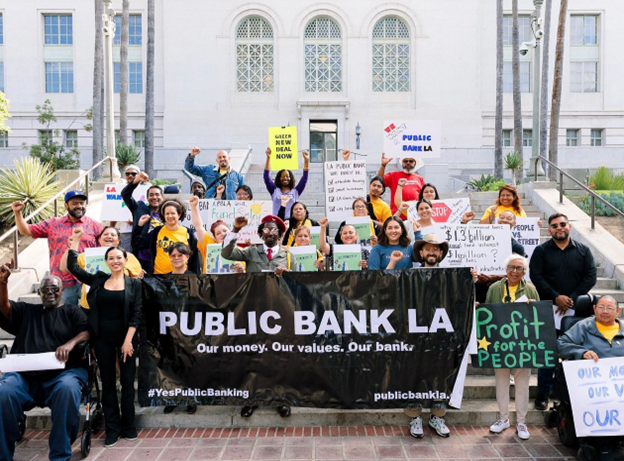Hacking the Business Growth Imperative
by Kali Young
“Despite its immensity, the Earth’s resources are not infinite, and it’s clear we’ve exceeded its limits. But it’s also resilient. We can save our planet if we commit to it.” – Yvon Chouinard, founder of Patagonia

Yvon Chouinard, founder of Patagonia, pens famous letter declaring Earth as Patagonia’s only shareholder. (Campbell Brewer, Patagonia)
In 2022, Patagonia founder Yvon Chouinard took a bold step to make the Earth, in essence, the company’s only shareholder. Chouinard explained that he doesn’t respect the stock market and believes that companies become irresponsible after going public. In a famous letter, he further declared, “Instead of ‘going public,’ you could say we’re ‘going purpose.’ Instead of extracting value from nature and transforming it into wealth for investors, we’ll use the wealth Patagonia creates to protect the source of all wealth.”
To fight the extinction and climate crises, Patagonia gifted its voting stock, worth $3 billion, to the Patagonia Purpose Trust. The trust has a trustee, an enforcer, and a “trust committee” that comprises representatives from stakeholder groups and directs the trust. Patagonia gave its remaining, nonvoting stock—98 percent of the company’s equity—to Holdfast Collective, a nonprofit. (Patagonia itself is not a nonprofit.)
More and more business leaders are realizing that “green growth” is an oxymoron. They are finding that economic growth must be intentionally limited to avert ecological crisis and economic collapse. Like Chouinard, a few of these leaders have even taken steps to limit their own companies’ growth. Let’s explore hopeful stories of innovative, post-growth business models emerging to upend the extractive growth imperative.
How Mainstream Business Models Are Structured for Growth
Growth is built into the structure of publicly traded businesses. This type of firm represents only a small slice of the overall business sector. However, its outsized market power affects the behavior of all businesses. Privately held firms interact with suppliers and consumers in markets dominated by publicly traded giants. This contributes to the elevated profit motive that defines the business community zeitgeist.
Investment returns, shareholder primacy (vs. the interests of stakeholders including labor, consumers, and the general public), and grow-or-die market competition all support the growth imperative. Growth is sometimes even more important to investors than profit. Whether they own public stocks or private equity shares, investors can only sell them for a profit if people believe the company will be profitable later on. Even if a company isn’t turning a profit yet, people assume that fast growth means it eventually will. This turns growth into a proxy for future profitability.
Venture capital markets, where initial investors often expect to “cash out” quickly, reflect this tendency on steroids. Private equity investors, who often buy out and restructure companies, have less patience for “lagged” profitability. This results in an even stricter growth imperative, forceful enough to corrupt any company’s social or environmental values.
Investor-mandated profit theoretically comes from corporate management of critical inputs—labor, natural resources, and capital—and marketing of distinct goods and services. In reality, it’s all about extraction: extracting effort from labor, resources from the environment, and goodwill from consumers. In an interview for the Herald, Dr. Melanie Rieback, who teaches Post Growth Entrepreneurship at the University of Amsterdam, explained, “Financial extraction is the real driver of growth.” By “financial extraction,” Rieback means the process by which external-investor interests influence the company to maximize profit (or at least expectations for profit), to the exclusion of all other interests.

Gathering facilitated by Slow Money, which catalyzes grassroots funding for local food systems. (Slow Money Institute)
Rieback thinks that profit itself is not the problem. Degrowthers would tend to disagree, but Rieback’s point is that negative social and environmental impacts are minimized when profit is invested in the company and managerial compensation is not tied to share prices. When their pay is tied to share prices, management is incentivized to demand growth at all costs. When real profits don’t meet expected profits, the incentive is even stronger.
For businesses operating outside of equity markets, high-interest loans also incentivize growth on short time horizons. The agricultural sector provides a stark example of this. High-interest loans to conventional farmers motivate them to aim for high-yield, rapid production even with grave, long-term environmental impacts. Under these conditions, farmers rely on often harmful methods, including copious use of pesticides and fertilizers, intensive tillage, genetically modified organisms, and Confined Animal Feeding Operations.
How can businesses access funds with no growth strings attached?
Alternative Funding Sources
In response to the dawning realization that equity markets and high-interest loans are unsustainable, some organizations have developed non-extractive funding models. Like Patagonia, they answer to a cause rather than an unrealistic expectation for ever-rising profit. Slow Money has invested $100 million in over a thousand small farms for climate-resilient and regenerative agriculture. They organize local groups with a variety of funding approaches: “public meetings, on-farm events, pitch fests, peer-to-peer loans, investment clubs, and, most recently, nonprofit clubs making 0% loans.”
Seed Commons also takes a non-extractive approach to finance. They protect businesses from investor expectations to skimp on costs to generate fleeting profitability, which often serves only to sustain unrealistic expectations. Their companies set standards for wages and environmental protection, for example, and only once those standards are met do they distribute profits. What’s more, investors receive no more than half of the profits after the company is financially sustainable. This model takes the pressure to grow fast at any cost off the worker cooperatives Seed Commons invests in.
Another alternative to extractive finance is community crowdfunding. In Denmark, Andelsgaarde is crowdfunding cooperatively held land for regenerative agriculture transitions. Community-supported agriculture (CSAs), “edible credits”, and member cooperative or community “shares” are all forms of community investment where members receive food instead of financial returns. These investment models provide hope. However, if we are to overcome the polycrisis, steady-state businesses will need much more funding than these alternatives can deliver.

June 2024 rally at the Los Angeles City Hall. (Public Bank LA Coalition)
Public banks, which are owned by national, state, or local governments, may be able to fill the gap. They use tax revenue to create credit, which they are mandated to use in the interest of the public, rather than shareholders. In a CASSE interview, Dan Pelegero of Public Bank LA and the California Public Banking Alliance said, “Public banking, with a steady tax base, can provide long-term, low-interest loans to environmental projects that may not provide conventional banks with high enough growth and returns.”
Public banks provide a hugely disproportionate percentage of funds for climate-change solutions. The Green Climate Fund and the Nordic Investment Bank, for example, have provided hundreds of billions of Euros in climate finance in recent years.
The Stewardship Governance Model Upends Growth
According to Dr. Rieback, foundation ownership, “golden” shares, and asset locks are powerful tools for lessening the emphasis on profit. They illustrate the potential for stakeholder capitalism and the steady-state practices it can engender. Golden shares grant a stakeholder significant control and veto power over company decisions. They are designed to prevent a company sale or takeover bid. Golden shares can protect a company’s social purpose against the pressures of the profit motive.
Purpose trusts, another tool for steady-state governance, leverage “steward-ownership” to bind businesses to a public-interest mission over profit. A purpose trust is a non-charitable nonprofit trust that holds majority shares in a company. A trust-enforcing organization provides stakeholder oversight.
This organization may be a single individual, an outside nonprofit, or a committee. It may represent communities affected by the company’s work or advocates for a cause aligned with the company’s mission. A trust-enforcing organization differs from a board of trustees in that it is not accountable to shareholders. It can override decisions made by the board of trustees if they contradict the trust’s purpose.
In 2018, Reitman-White pioneered the ownership and legal-structure transition for one of the first purpose trusts in the United States. Organically Grown Company is governed by a trust made up of its stakeholders: its community, workers, consumers, and farm suppliers. Then, in 2022, Patagonia became the first large, U.S.-based company to embrace stewardship governance and the purpose-trust model.

Organically Grown Company’s Portland distribution team. (Organically Grown Company)
Purpose trusts have expanded rapidly in the last few years in the United States and are already common in Europe. Two organizations, Common Trust and Purpose Owned, are making steward-ownership more accessible for owners interested in transforming the economy as they transfer ownership. Common Trust facilitates transitions to employee ownership through purpose trusts. Purpose Owned helps owners to “deepen impact through codifying purpose commitments, design ways to share governance and rewards with stakeholders, and bring in aligned financing to create regenerative business models.”
When financial extraction is defused, a world of possibilities comes to life. Yes, the need to grow has often driven (or at least monetized) innovation. However, there is also room for innovation in post-growth business models, as well as room to prioritize other goals over growth. Growth is often a pale substitute for value, which often takes a back seat to flackery, smoke, and mirrors. The brightest business minds of tomorrow will shrug off the constraints of the shareholder-primacy model and embrace new modes of finance and governance.
 Kali Young is a development manager at CASSE.
Kali Young is a development manager at CASSE.





Excellent article. Behind all this is the need for cultural change. I attended a “Feminist Economics” session where an alternative set of assumptions for economics were proposed: By stabilizing population and deciding “enough is enough” the goal becomes sufficiency rather than growth. Economic’s assumptions reverse: scarcity becomes abundance. More becomes enough. Perfect knowledge (given preferences) becomes–what my mother taught me about not taking more than my share. Public goods matter. Collective decisions more important than individual decisions. And so on.
Also: The strength of markets has been that money incentives are good motivators and bad managers lose their money and don’t get to play anymore (except in the crooked Trump world of rent seeking and corruption). So the challenge is to figure out monetary incentives not tied to growth, and/or change people’s values. A lot of people work for things they believe in and maybe even work harder and smarter. Professor Ely’s 1884 “old and new political economy” manifesto for the reformist AEA founded the following year, talked about motivation for self, for community (family, etc, and for ideas. He pointed out that monetary incentives did not explain why people were willing to die in the American Revolution or the Civil War.
Good article, thanks! Especially grateful for the links to Seed Commons and Slow Money. How about a companion article on how to invest in this kind of effort? Investors face obstacles to switching to these forms. For example, if the amount of money I have invested in The Market falls below a certain threshold, I have to pay my financial advisor a higher percentage. Furthermore, as a retiree, I am dependent upon The Market continuing its overall growth trajectory. If it stops growing or contracts, I lose retirement funds, and the risk of poverty at an age when I cannot do the work to overcome it any more increases. If I were to invest heavily in profit-agnostic ventures, my retirement would be at risk. This also holds for a younger person during their working years, trying to save for a future retirement.
When a business wants to offer a 401K to employees, the manager of that 401K has the same problem of a fiduciary duty to make investments in growth to support the employees’ future retirement.
In a simpler world, adult children provide for their aging parents, but that is no longer the world we live in, at least in the US. With increasing frequency, adult children continue to need some amount of financial support from aging parents, the opposite of what it should be.
I hope you can research these issues. I’m anxious to see what you come up with.
This article is a fascinating insight into how businesses can thrive without the relentless growth imperative. I especially loved the example of Patagonia’s purpose trust and steward-ownership model. It shows that companies can prioritize environmental and social impact over shareholder profit. Alternative funding approaches like Slow Money, Seed Commons, and public banks provide real hope for sustainable business models. It’s inspiring to see post-growth strategies emerging that redefine success beyond just financial returns